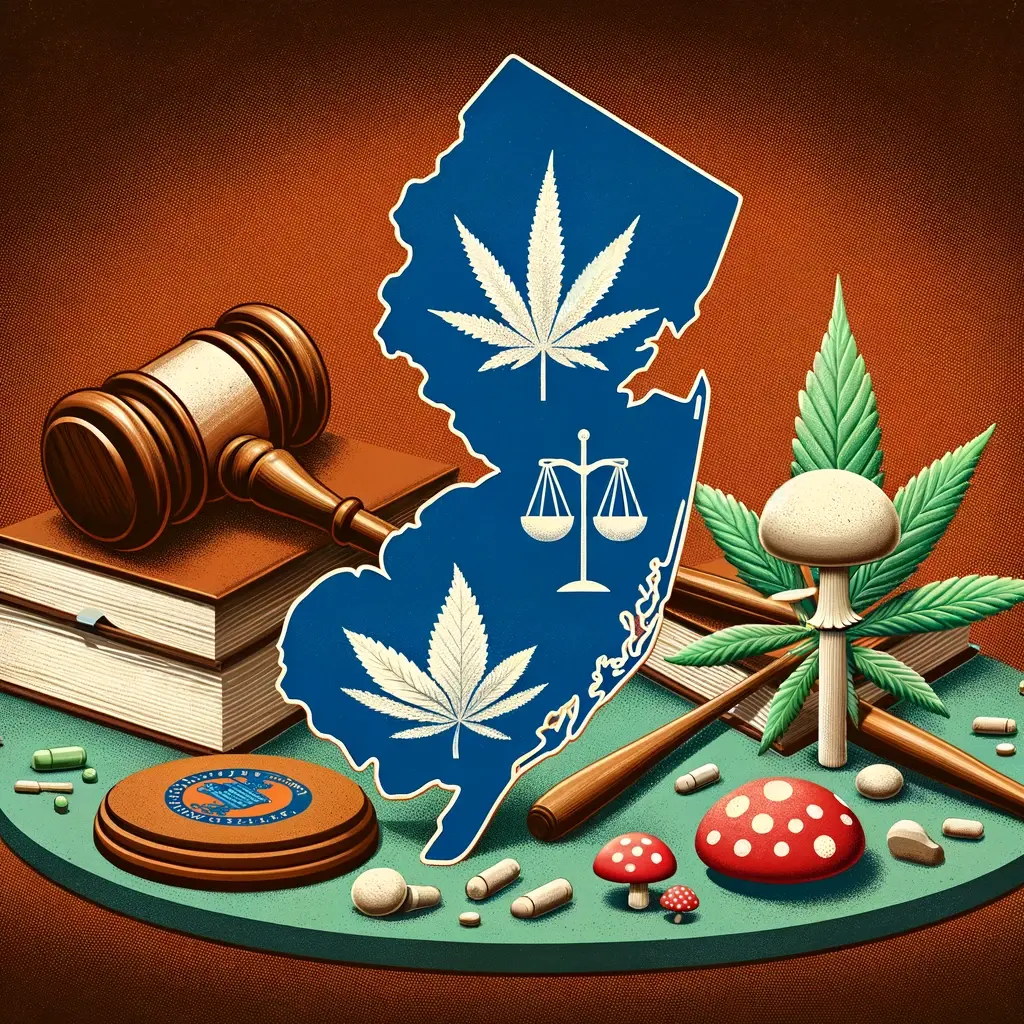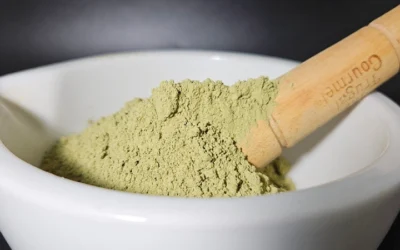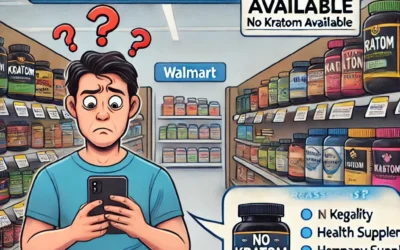Comprehensive Overview of New Jersey’s Drug Policy Reform and Kratom Regulations
In an effort to advance drug policy reform, New Jersey lawmakers are diligently working on a broad range of legislative proposals. The war on drugs is not working and New Jersey is looking to other ways to progress. These bills encompass various aspects including marijuana interstate commerce, home cultivation, banking, employment protections, psychedelics legalization, and kratom regulations. This marks a significant year for drug policy reform in New Jersey, building upon the strides made since the legalization of adult-use cannabis last April.
A key area of focus is the legalization of home cultivation of cannabis and the New Jersey Kratom Protection Act, a notable exception in New Jersey compared to other states with adult-use laws. Governor Phil Murphy has expressed an open-minded stance on this matter, suggesting its consideration once the market matures further.

Explore the legal status of Kratom in New Jersey and purchase quality Kratom from Christopher’s Organic Botanicals.
Summary of pivotal bills concerning cannabis, psilocybin, & kratom proposed by New Jersey lawmakers for 2024
– S1985 and A414: Legalize personal cultivation of up to six marijuana plants for recreational purposes and up to 10 for medical use for those 21 and older.
– S1393/A846: Authorize home cultivation of medical cannabis.
– S2286: Allow the governor to authorize interstate commercial cannabis activities under certain conditions.
– A901: Offer protection to financial institutions and insurers working with the cannabis industry against state regulatory penalties.
– S1126: Propose the creation of a state bank for marijuana-related funds.
– S1955/A453: Provide protections for insurers and insurance producers in the cannabis business.
– A1609 and A2719: Establish employment protections for authorized medical cannabis patients and legalized cannabis use.
– S677 and A2798: Address employment policies regarding cannabis use.
–S1943: Mandate coverage for medical cannabis use under workers’ compensation, personal injury protection, and health insurance.
– A898: Implement a program to subsidize medical cannabis for Medicaid or NJ FamilyCare patients.
– S1944: Allow reimbursement for medical cannabis costs under various state programs.
– ACR76: Propose a constitutional amendment to allocate marijuana tax revenue for mental health, addiction recovery, and drug rehabilitation services.
–A1105: Exclude medical marijuana sales from sales and use tax.
– A2879: Establish maximum THC levels for marijuana products.
– S2283: “Psilocybin Behavioral Health Access and Services Act”; promote health and wellness through psilocybin, decriminalize and expunge past offenses, and allow personal cultivation.
– A1188: Introduce the New Jersey Kratom Protection Act.
What Can We Learn From New Jersey?
New Jersey’s current trajectory in drug policy reform represents a significant step towards a more enlightened, empathetic, and evidence-based approach to substance use. The implementation of these reforms sets a precedent for other states to contemplate and potentially adopt similar measures. This could potentially result in a significant shift in the way drug use is perceived and addressed across the entire nation. By observing the success and positive outcomes of these reforms, other states may be encouraged to reevaluate their own drug policies and consider alternative approaches.
This nationwide shift in understanding and managing drug use would have far-reaching implications. It would signify a departure from the traditional punitive approach towards drug offenses and instead prioritize a more compassionate and health-focused approach. Rather than criminalizing drug users, the focus would shift towards providing them with the necessary support and resources to address their addiction and improve their overall well-being.
Such a shift in perspective would also have a profound impact on society as a whole. It would challenge the stigmatization and marginalization of individuals struggling with drug addiction, promoting a more inclusive and understanding society. By recognizing drug addiction as a public health issue rather than a criminal one, resources could be redirected towards prevention, treatment, and harm reduction strategies.
Additionally, this nationwide shift could lead to a reevaluation of the societal impacts of drug use. Instead of viewing drug use solely through a criminal lens, there would be a greater emphasis on understanding the underlying factors that contribute to drug addiction, such as poverty, mental health issues, and social inequality. This holistic approach would enable policymakers to address the root causes of drug addiction and implement comprehensive solutions that tackle the issue from multiple angles.
Overall, the potential nationwide shift in how drug use is understood and managed holds great promise for transforming the current drug policy landscape. By prioritizing compassion, health, and evidence-based approaches, it has the potential to improve the lives of individuals struggling with addiction, reduce the burden on the criminal justice system, and create a more just and equitable society.

White Maeng Da Batch 150631 showcasing the alkaloid profile on the front label and fresh kratom powder in an apothecary-style bowl.
In Summary
The state has been actively utilizing cannabis revenue for community initiatives, including hospital-based violence-intervention grants and a marijuana social equity funding program. The evolving marijuana market also includes expanding the range of edible cannabis products available at licensed retailers.
The recent legislative developments in New Jersey demonstrate a significant shift towards a more progressive and comprehensive drug policy. This approach, characterized by its focus on balancing community wellness and individual freedoms, signifies a modern understanding of the complex nature of substance use and its impact on society.
New Jersey’s move to create a more inclusive and forward-thinking drug policy is evident in the broad spectrum of bills being introduced and considered. These range from the legalization and regulation of cannabis for both medical and recreational use, to exploring the potential benefits and decriminalization of psychedelics like psilocybin. The state’s willingness to address these topics head-on showcases a readiness to engage with challenging and often stigmatized issues in a responsible and informed manner.
The “New Jersey Kratom Consumer Protection Act”, or KCPA is a particularly notable development, underscoring an increasing recognition of the need for specific guidelines and protections around the use of kratom. This legislation points to a broader acceptance of the herb, which has been a topic of much debate both nationally and internationally.
By introducing such a bill, New Jersey acknowledges the importance of providing clear, regulated frameworks for kratom use, ensuring that those who choose to use it can do so safely through scientific studies and of course legally. This move also suggests an understanding of the potential therapeutic benefits of kratom, aligning with a global trend towards embracing natural and alternative remedies.
Furthermore, these legislative efforts reflect a commitment to public health and safety, while respecting individual choice and autonomy. The emphasis on comprehensive research, informed policymaking, and public education in these bills indicates a holistic approach to drug policy. This approach not only seeks to mitigate the risks associated with substance use but also recognizes the potential benefits when used responsibly and under proper regulation.






0 Comments